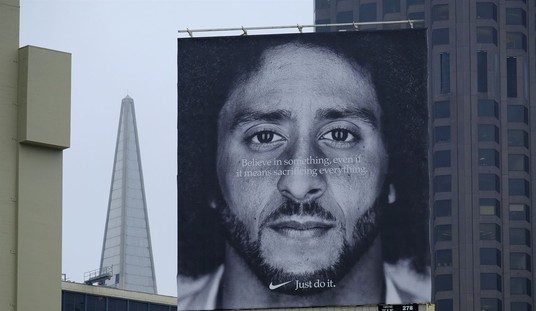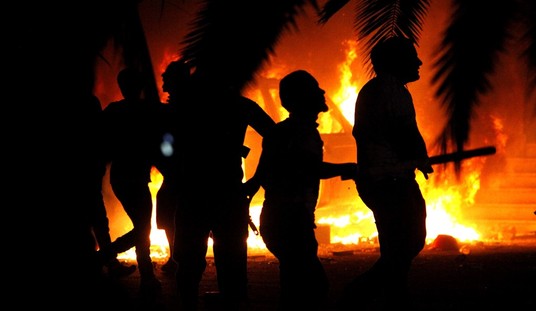In hindsight I’m embarrassed that I’ve pushed theories on you guys about huge twists to come as season two tumbled to its end. Between the complexity of the plot and the endless detours into humdrum personal drama, like Frank’s IVF treatment, watching the show has grown more numbing every week. The only justification for that, I thought, would be to lull viewers into letting down their guard for an electric shock in which one of the three detectives would be revealed as Caspere’s killer and a henchman for the criminal syndicates running the city. If it turned out that Velcoro, say, had been playing Woodrugh and Bezzerides the whole time, with little clues dropped along the way that would finally add up during the Big Reveal, that would almost redeem everything that had gone before. The season still would have been a drag, but a major surprise would have added a degree of satisfaction that’s been missing from … pretty much every element of the show since McConaughey and Harrelson went away.
The flaw in my “huge twists” theory was that it takes for granted that Nic Pizzolatto and the TD crew actually enjoy murder mysteries and care about solving them. It presupposes that the identity of Caspere’s killer matters. But it doesn’t, just like it didn’t matter to TD last year that Cohle and Hart caught only one member of the cult responsible for those Bayou sex crimes. To Pizzolatto, murders are just a backdrop for the really interesting stuff, like Bezzerides grappling with her daddy issues or Woodrugh trying to hide the fact that he’s gay. There’s still one episode to go so anything can happen, I guess, but it sure looks after last night like the people who killed Caspere were the likeliest suspects all along, i.e. a cabal of corrupt politicians, corrupt cops, and gangsters who collectively have had five minutes of screen time and none of whom have made an iota of an impression on viewers. Assuming there was a twist in the works gave the show unearned credit for caring as much as its audience does about what’s supposed to be the central question of the series. Who killed Caspere? Who cares? Velcoro’s boss did it, okay? Now let’s get back to what’s really important, namely, how much Vera the hooker enjoys sex parties.
The main reason to watch next week is to find out how many of the endless subplots picked up and then set aside through the first seven episodes will turn out to matter and how many will prove to be dead ends, dropped into the script by Pizzolatto for reasons known only to him. Scott Meslow grumbled about that in a piece at The Week this morning:
Remember our visit to that Mad Max-esque film set with the sketchy director? Remember Ray’s quasi-flirtation with the scarred waitress at the bar? Remember Paul’s weird, oedipal relationship with his mom? Those are just three examples from a long list of ideas True Detective has haphazardly introduced and discarded this year…
With so little time left to wrap up this sprawling narrative, much of this week’s “Black Maps and Hotel Rooms” is a pure exposition dump: characters mumbling to each other about blue diamonds and land parcels and decades-old cases they’ve reopened. One of True Detective’s biggest miscalculations in season two is building so much of the central story on things that happened in the past, without any of our protagonists’ direct involvement. Instead of letting the audience watch something interesting — like that high-stakes jewelry store robbery we keep hearing about — the show just puts Colin Farrell in a dimly-lit hotel room and has him repeat what he read in a file.
That’s one explanation for why the plot has been so difficult to follow. It’s not just the huge number of moving pieces, it’s the fact that lots of those pieces seem to be red herrings by design, presumably placed in the show as shorthand character development (remind me again, why do we care about Paul’s mom?) or to give the viewer a taste of what detectives experience in trying to separate meaningful clues from trivia. Which would be fine if it hadn’t come at the expense of screen time for minor characters, like the crooked higher-ups at Vinci PD, who should have been developed more if we’re supposed to care about them now. I prefer the red herrings, though, to a narrative in which a bunch of seemingly unconnected details get stitched together haphazardly and unconvincingly into something important to the central narrative that … really makes no sense. Christopher Orr:
Please correct me if I’m wrong, guys, but as I understood it:
Woodrugh was set up by his war (and bed) buddy, who hooked up with him “on orders” as part of a blackmail scheme by his old mercenary outfit, Black Mountain, which wanted to make sure that he “kept confidentiality” in light of the damaging (but never described) news stories that have been circulating about the company. But coincidentally, Black Mountain has now re-branded as Ares Security, a company whose only client is the Catalyst Group, which has been up to its eyeballs in the crooked land deals and sex parties Woodrugh has spent the whole season investigating. Still more coincidentally, Teague Dixon, Ray Velcoro’s erstwhile partner and a halfhearted task force member, was tailing Woodrugh for his own, individual blackmail scheme and photographed him with said old war buddy. After Dixon died during the episode four bloodbath, Police Chief Holloway, by yet another “happy coincidence,” found the photos Dixon had taken of Woodrugh. Still later, Holloway and assorted Catalyst Group muckety-mucks were at the sex party from which Woodrugh and Velcoro stole the land deal contracts. So now Holloway shows up with Ares Security (again, formerly Black Mountain; sole current client: Catalyst) to use the photos to make Woodrugh return the contracts.
That’s a lot of coincidences. If you’re going to work that hard for a set-up and betrayal twist for Woodrugh, why not involve a major character like Velcoro instead of one whom we’d barely met, like his old contractor friend? That was the most maddening part of last night’s episode: Most of the key action was handed to minor players whom we’d not only forgotten about but whose roles were so small to begin with that we can barely keep their names straight. I’d completely forgotten that the cop who demanded the contracts from Woodrugh in the tunnel was in fact a cop and that we’d seen him before. Until I read some recaps this morning, I thought it was Woodrugh’s buddy who shot him in the back at the end of the episode. It wasn’t. It was Lieutenant Burris, Velcoro’s superior and a character whose name I’d never learned and who I doubt I could have picked out of a line-up. In fact, apart from Bezzerides infiltrating the sex party and being rescued by Velcoro and Woodrugh last week, it’s hard to remember anything interesting that the three detectives ostensibly at the heart of the show have done in the last few episodes. Frank Semyon roughs a few people up reliably every hour but the detectives just seem to sit around. Why is that? The unfortunate love scene between Farrell and McAdams almost seemed like a goof on the dullness of what the central characters are given to do on this show. If they’re just going to sit around with time to kill, they might as well get it on.
The impression I get is that there’s another eight or nine episodes’ worth of material that would make sense of some of this but which ended up on the cutting-room floor when HBO insisted on holding the show to the same eight-episode limit as season one. It’s hard to believe that the show was written to look this way from the beginning; it reeks of hard editing decisions in which major subplots got cut waaaay back, included so as to hint at what Pizzolatto wanted but left undeveloped because there simply wasn’t enough time. Although even then, you’re left to wonder: Why do we know more about Woodrugh’s girlfriend than we do about Burris? Why did Woodrugh, Bezzerides, and Semyon each get a separate scene last night in which they did little more than tell a loved one to lie low for a few days? What a wreck.








Join the conversation as a VIP Member